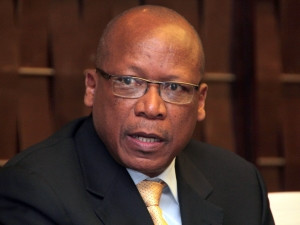
MTN South Africa's interim results were hurt by supply chain challenges and worker strikes. The operator saw interim revenue drop by 1.4% to R18.9 billion, despite growing its subscriber base by 1.8% to 28.5 million.
MTN says the revenue slump for the six months ended 30 June was mainly due to a 27.5% reduction in handset revenue.
"Management expects this to improve in the second half supported by the changes in the logistics process."
MTN says its South African business delivered an improved performance despite disruptions caused by a two-month strike by the Communication Workers Union.
Group revenue declined by 4.9% to R69.2 billion, largely due to currency fluctuations.
"Movements in the majority of the group's operational currencies against the rand negatively impacted performance."
The telco's prepaid subscriber base in South Africa increased 2.7% to 23.2 million, while "handset supply chain challenges" saw post-paid segment subscribers decline by 1.7% to 5.3 million.
MTN SA saw data revenue grow 26.6%, while outgoing voice revenue dropped 0.4%. Data revenue now contributes 30% to total revenue for the South African business. Meanwhile, group data revenue (excluding SMS) grew by 21.3% R15.4 billion, supported by an increase in smartphone penetration and an expanded 3G and LTE network. MTN's South African and Nigerian operations were the shinning stars, together accounting for 69.7% of total group data revenue.
"[Group] data usage increased 87% following the strong uptake in data services and reduced tariffs. Data's contribution to total revenue was 22.3%.
"Digital services and mobile financial services showed encouraging growth, increasing their contribution to data revenue," adds MTN.
MTN says it now has 5.8 million smartphones on its South African network, up 9% year-on-year. Over 17 million people used MTN data in SA in the first half of the year, showing growth of over 18%.
However, "growth in smartphones and data users was constrained by low handset availability," according to MTN.
MTN says its South African operation will accelerate its capex plans for the remainder of the year to support medium-term growth prospects, particularly in the data area. Corrective measures have also been implemented to improve handset sales.
Group subscriber numbers grew by 3.4% to 231 million while headline earnings per share slumped 10% to 654c. Group voice traffic was up 11%, while data traffic grew a whopping 87%. EBITDA dropped 10%, while capex increased 18%.
MTN further afield
MTN says its Nigerian operations experienced a difficult six months and it expects the balance of the year to remain challenging in that territory. Subscriber numbers in Nigeria grew by 4.9% to 62.8 million but revenue dropped 9%, or 1.1% in constant-currency terms.
"[The revenue decline] was mainly impacted by a fall in outgoing voice revenue as a result of lower competitor voice tariffs, increased pressure on consumer spending, and the use of multiple SIM cards, which is estimated to be almost 50% of the subscriber base."
MTN connects over 230 million people in 22 countries across Africa and the Middle East, and says it is well positioned to tap into the digital space on the continent and in the Middle East. MTN plans to: "leverage our brand, customer base and distribution network to accelerate growth in e-commerce, financial services, media and entertainment and lifestyle services".
MTN Irancell grew its subscriber numbers by 0.5% to 44 million, while revenue in the region grew almost 14%. MTN saw revenue grow in Ghana, Ivory Coast and Uganda, while MTN Cameroon's performance was below expectations.
During the period, MTN grew Mobile Money subscribers by 45.8% to 32.4 million.
"This performance was underpinned by expanding our distribution base and product range to include international remittances, savings, lending, and insurance and retail payments."
Share